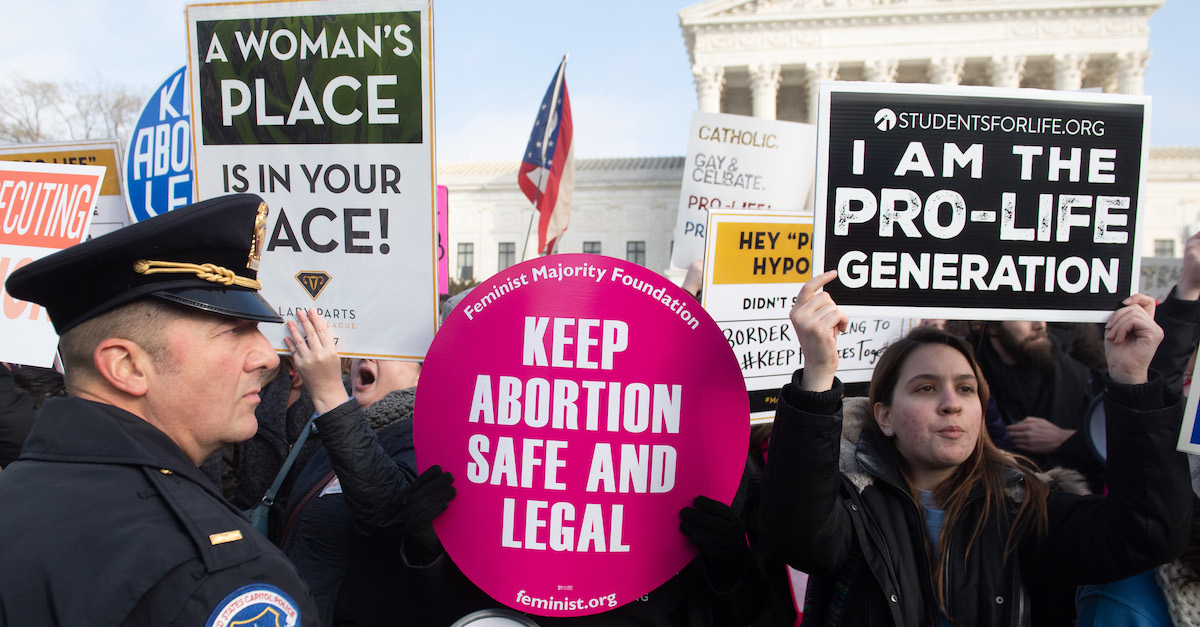
Tennessee filed an emergency application with the Supreme Court on its “shadow docket” late Monday evening. The state’s goal: to have SCOTUS reverse a Sixth Circuit ruling and reinstate Tennessee’s mandatory 48-hour waiting period for abortions — a regulation the circuit court called “yet another unnecessary, unjustified, and unduly burdensome state law that stands between women and their right to an abortion.”
The petition is pending before Justice Brett Kavanaugh because he is the justice assigned to the geographic area that includes Tennessee. Justice Kavanaugh could rule on the request alone but will probably refer it to the full court for consideration.
The case presents the Court with an opportunity to seriously erode the precedential value of Whole Womens Health v. Hellerstedt. In 2016, the Supreme Court decided Whole Woman’s Health by a 5-3 vote; in its opinion, the Court struck down a Texas abortion restriction on the grounds that the burden it imposed on access to abortion outweighed any potential medical benefit. Not long thereafter, the Court issued a plurality decision in June Medical Services L.L.C. v. Russo; the latter case presented nearly-identical facts but afforded the justices an opportunity to advocate competing standards for evaluating the validity of abortion restrictions.
In its emergency appeal, Tennessee argues that its waiting period is “modest” and that “[t]here is no evidence that the waiting period has prevented any women from obtaining abortions, let alone enough women to justify facially invalidating the law.” Furthermore, it says that “fourteen other States have similar waiting-period laws,” but that “Tennessee is the only State in the Nation that cannot enforce its law because of a federal judicial decree.”
In its brief, the state contends that leaving the Sixth Circuit’s stay (invalidating the waiting period) in place “would irreparably harm Tennessee and its citizens” because “some unborn children will be aborted who might otherwise be spared that fate.”
“Some women will choose abortion without making an informed and deliberate decision, and some will later come to regret that irreversible decision,” the state’s argument continues.
To make its case, Tennessee presents the Court with abortion statistics. During a time when the 48-hour waiting period was enforced, it argues, “[t]he annual number of abortions performed in Tennessee declined only slightly.” Moreover, “no one has ever argued that this decline — which began years before the waiting period took effect and mirrors nationwide trends — is attributable to the waiting period.”
The state therefore argues that its waiting period is necessary to preserve life and that its waiting period did very little to actually preserve life.
Under current jurisprudence, state governments cannot ban abortion prior to the point an infant could survive outside the womb — known as the point at which the fetus is “viable” — except to ensure the health of the mother.
In the Sixth Circuit’s decision staying the Tennessee regulation, the court lamented the SCOTUS’s role in applying confusing standards to abortion laws. “Despite Whole Woman’s Health’s offer of clarity,” wrote Circuit Judge Karen Nelson Moore (a Bill Clinton appointee), “the waters muddied again with the Court’s splintered decision in June Medical Services L.L.C. v. Russo.” It is just those “muddied waters” that Tennessee hopes to use to its advantage in the emergency petition before Justice Kavanaugh.
One road by which Tennessee could prevail is for the Court to adopt Chief Justice John Roberts‘ reasoning in his concurrence in June Medical Services. Such an outcome would mean that the key analysis applicable to abortion regulations is not a balancing of burdens versus benefits, but rather a simple ruling on whether the regulation imposes an undue burden on a woman seeking an abortion.
Tennessee argues that its waiting-period regulation is identical to the Pennsylvania waiting period upheld in 1992 by the Supreme Court in Planned Parenthood v. Casey. Noting that the lower court “made no findings about how many women (if any) are at risk of domestic violence because of the waiting period,” Tennessee contends that “the record suggests that domestic violence victims are an extremely small percentage” of the patients at issue in the litigation.
The state acknowledges that the trial court did find that “the waiting period can ’cause patients to suffer emotionally and psychologically'” but argues that the Supreme Court “has never held that psychological harm qualifies as a substantial obstacle” — and shouldn’t do so now. Tennessee also addresses the lower court’s finding that the waiting period puts burdens on the clinics themselves, saying that such burdens are “irrelevant unless they affect a woman’s ability to access abortion,” such as if a clinic closes or is closed.
[Image via SAUL LOEB/AFP/Getty Images]